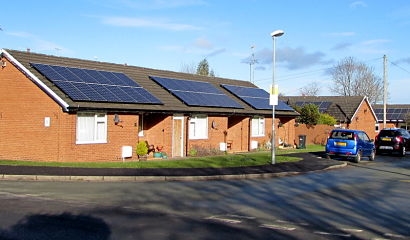
While the solar industry and households have been keen to invest in solar, policy has been delayed while facing further deterrents to investment from proposed rises in VAT for more complex schemes, including those with battery storage.
Provisional deployment data published last week shows poor deployment levels as expected following the closure of the feed-in tariff scheme, however industry is particularly concerned about the state of future monitoring of solar deployment.
Recent Parliamentary Questions reveal the Government is relying on MCS installation data for future rooftop solar deployment, however the MCS only covers microgeneration schemes up to 50kW in size and it cannot be guaranteed that all installations will adhere to MCS standards, which the STA strongly encourages. Rooftop solar schemes have permitted development up to 1MW in size, requiring only Prior Approval. Visibility of the UK market size is essential for solar companies planning their business strategies in the UK and accurate deployment data is of growing importance to grid management as well as to local, regional and national carbon reduction strategies.
Over two months after the closure of the export tariff, the Government has still not published policy proposals on the Smart Export Guarantee. The export tariff ensured that households were fairly remunerated for surplus power put on to the grid. The STA is seeking a fair minimum floor price payment linked to energy markets, as required under EU Law. The situation for solar has been compounded by wholly inadequate monitoring of rooftop solar deployment going forwards since the closure of the Feed-In Tariff, leaving it difficult to understand the impact of major policy changes on the sector.
Reeves' letter also presses on the surprise VAT rise proposal which risks damaging the economics of solar combined with battery storage, as well as collective purchase schemes which are being used by local authorities to help beat poor Government policy. The VAT proposals specifically affect projects where equipment forms a large majority of total installation costs, which means straight-forward solar-only installations will not be affected but 'smarter' projects may be.
“People want to act on climate change and nearly two-thirds of people want to invest in solar and battery storage” said STA Director of Advocacy and New Markets Léonie Greene. “It is very difficult to understand why the Government is making it harder than at any time over the past decade to do so, even compared to fossil fuels. As the CCC has stated, policies must be ramped up to deliver on net zero and the public must be meaningfully engaged - few technologies engage the public better than solar. We are grateful to Rachel Reeves and her Committee for continuing to press for desperately needed answers.”
For additional information:

